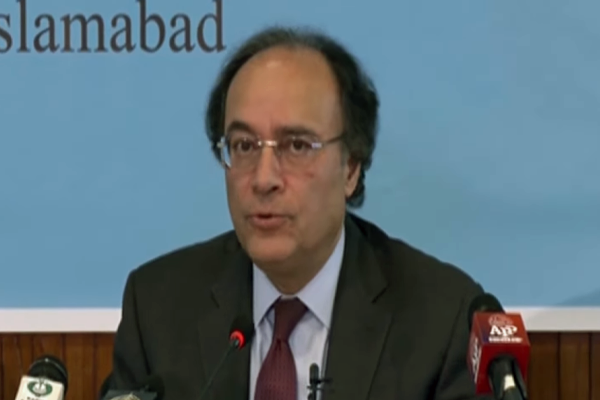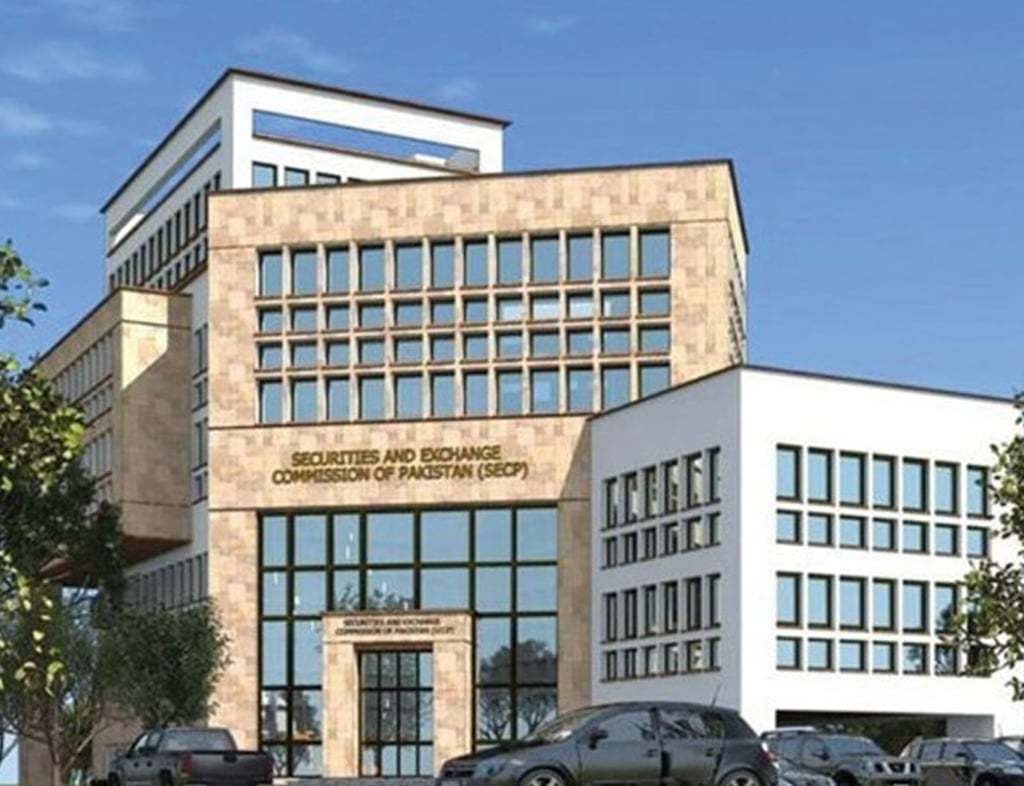PTBP Web Desk
Federal Finance Minister Muhammad Aurangzeb expressed optimism that the International Monetary Fund (IMF) would approve Pakistan’s 37-month, $7 billion loan programme during its board meeting on Wednesday.
The loan is critical to supporting the country’s ongoing economic reforms and achieving macroeconomic stability.
Speaking via Zoom from New York at the “High-Level Private Sector Investment Dialogue – CPEC II and Region,” organized by the Pakistan Regional Economic Forum (PREF) in collaboration with the Chinese Embassy in Pakistan, Aurangzeb shared his confidence in Pakistan’s economic recovery. He emphasized that reforms initiated by the government are beginning to show results, contributing to economic stabilization. The event was co-chaired by Chinese Ambassador Jiang Zaidong and attended by key business leaders from Pakistan, with discussions focusing on the future of the China-Pakistan Economic Corridor (CPEC) and regional cooperation.
Aurangzeb highlighted that Pakistan is now witnessing a positive shift in its economic outlook. He credited both China and Saudi Arabia for their continuous support in helping Pakistan meet the IMF’s stringent loan requirements. He described these two nations as Pakistan’s “all-weather friends,” acknowledging their crucial role in promoting economic stability.
The finance minister pointed out that Pakistan’s macroeconomic stability is evidenced by a decrease in policy rates, lower Kibor (Karachi Interbank Offered Rate), and sufficient foreign exchange reserves to cover more than two months’ worth of imports. He emphasized that the government’s priority remains sustainable economic growth, largely driven by private sector investments.
Aurangzeb underscored the importance of China-Pakistan Economic Corridor (CPEC) Phase II, which he described as an “opportune time” for regional integration. Unlike CPEC Phase I, which focused heavily on infrastructure development, Phase II aims to foster greater economic cooperation and private sector-led investments across multiple sectors. This includes new opportunities in climate-smart agriculture, energy transitions, value-added textiles, emerging technologies, and trade logistics.
Aurangzeb assured that Prime Minister Shahbaz Sharif, Planning Minister Ahsan Iqbal, and the entire cabinet strongly support CPEC II and its goals. He pledged to provide a favorable policy framework to attract private sector involvement and promote regional economic growth.
To further bolster regional cooperation, work has already begun on a $1 billion fund, established by Pak-China and Saudi-Pak investment companies, to facilitate joint ventures in the region. This initiative is expected to drive significant investments and enhance Pakistan’s economic prospects, especially in key PREF-identified sectors.
Aurangzeb expressed his commitment to working closely with China and other regional partners to accelerate the implementation of CPEC II. He stressed that these collaborative efforts would lead to increased prosperity and stability in Pakistan and the broader region.
Chinese Ambassador Jiang Zaidong, addressing the forum, echoed Aurangzeb’s sentiments. He emphasized the need for confidence in Pakistan’s development prospects, reaffirming China’s dedication to strengthening China-Pakistan relations and working towards a brighter future for both nations. Zaidong highlighted the importance of keeping national development in Pakistan’s hands and called for deepening China-Pakistan cooperation in various sectors, including agriculture.
Zaidong also pointed out that Pakistan’s current challenges in the energy sector are not the result of Chinese enterprises or the CPEC initiative but stem from long-standing systemic issues within the country’s energy infrastructure. However, he noted that Pakistan’s power generation capacity had significantly improved, and the sector is undergoing a systemic transition aimed at enhancing efficiency and price stability.
Former Chairman of the Board of Investment (BOI) and Chairman of PREF, Haroon Sharif, emphasized the rapid economic transformation occurring in the region and the immense opportunities available for Pakistan’s economic growth. He reiterated the importance of transitioning Pakistan from a debt-based economy to one driven by investment, particularly by leveraging the infrastructure connectivity created through CPEC. Sharif emphasized the role of private sector capital investments, especially from Central Asia and the Gulf, in fast-tracking CPEC Phase II.
Khalid Mansoor, former Special Assistant to the Prime Minister (SAPM) on CPEC, also presented several potential projects identified by PREF, covering sectors such as climate-smart agriculture, energy transition, value-added textiles, and emerging technologies. He emphasized the need for practical solutions and innovative investments in these areas to unlock Pakistan’s economic potential.
As Pakistan awaits the IMF’s decision on the $7 billion loan, the government’s focus remains on continuing its reform agenda, driving sustainable economic growth, and strengthening regional partnerships through initiatives like CPEC II. The country’s leadership is confident that these efforts will restore economic stability and unlock significant opportunities for both local and international investors.




